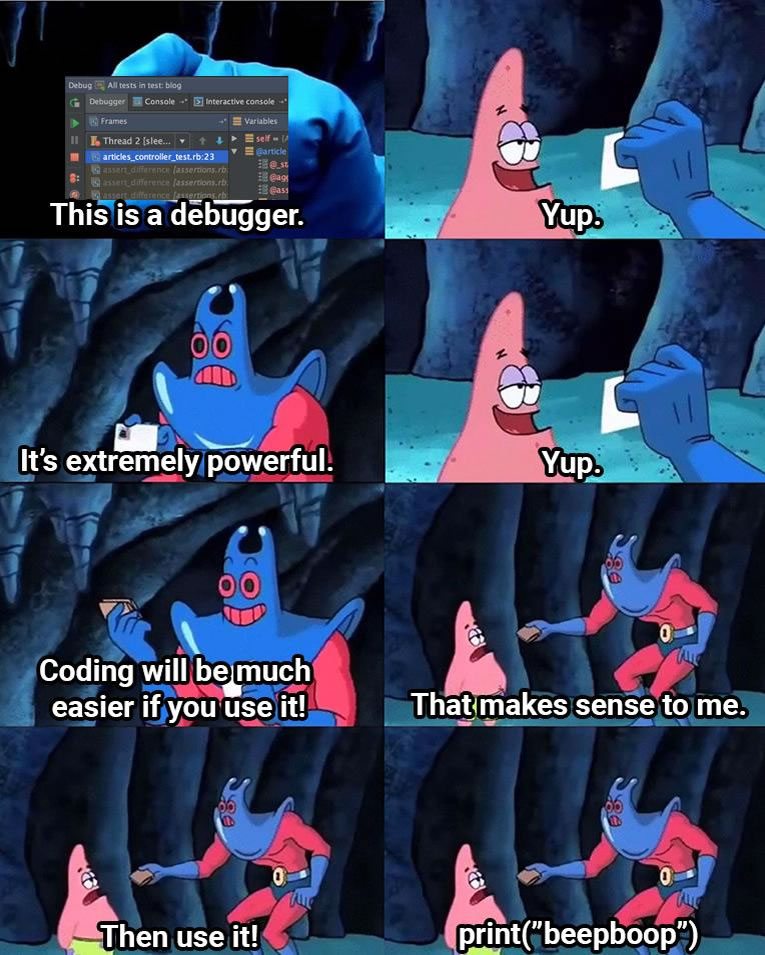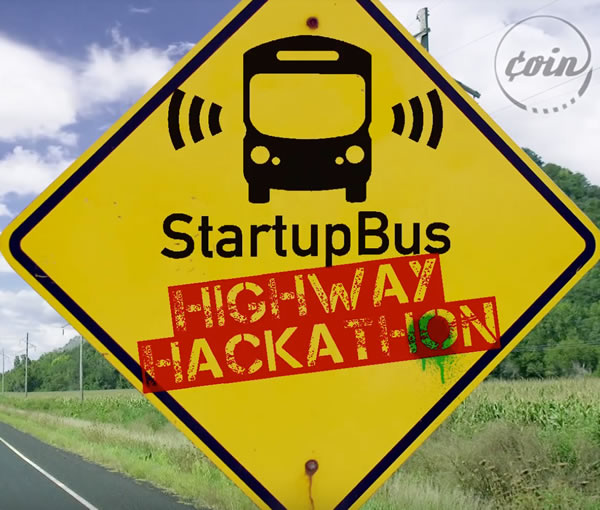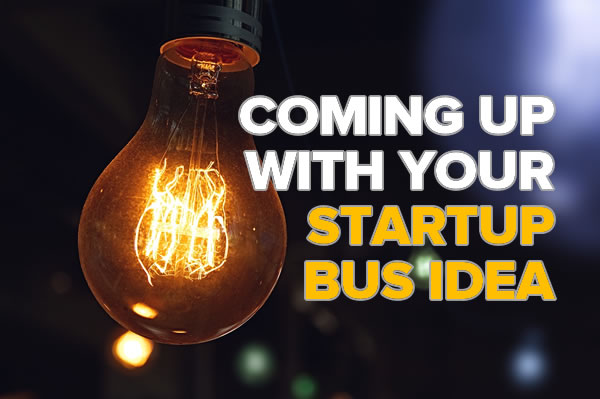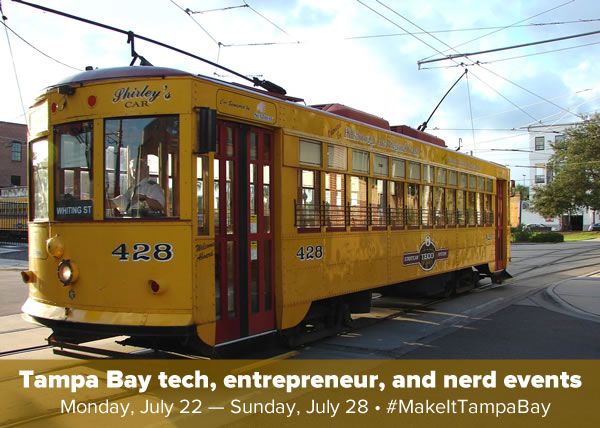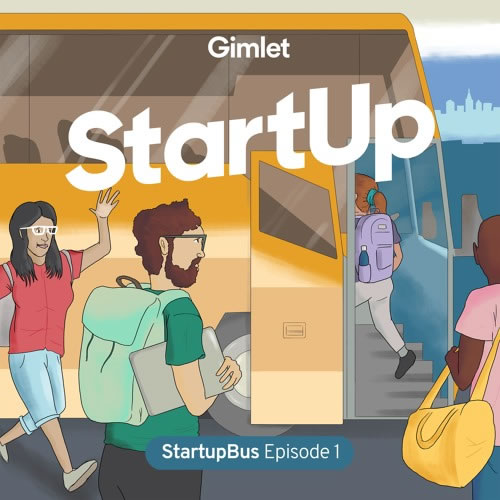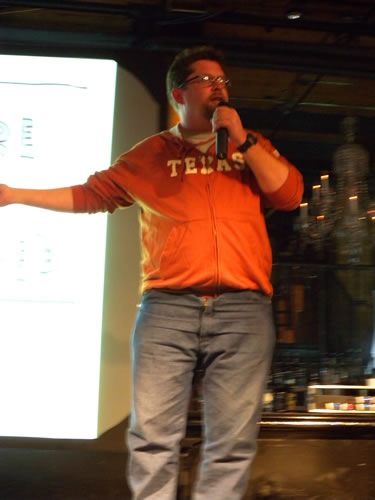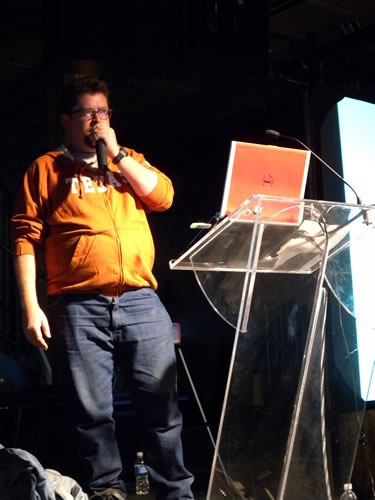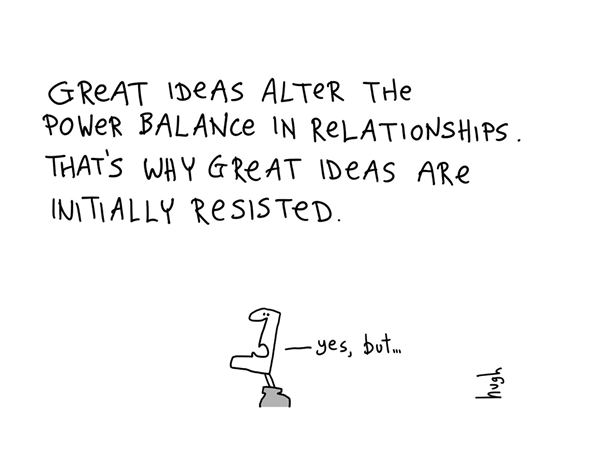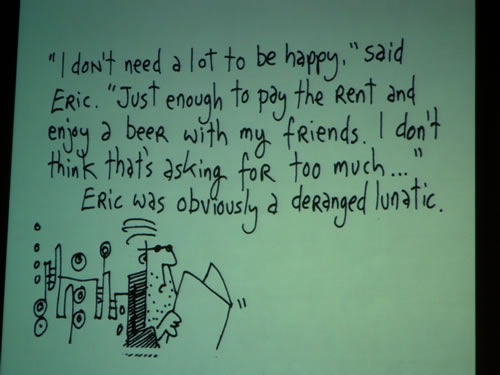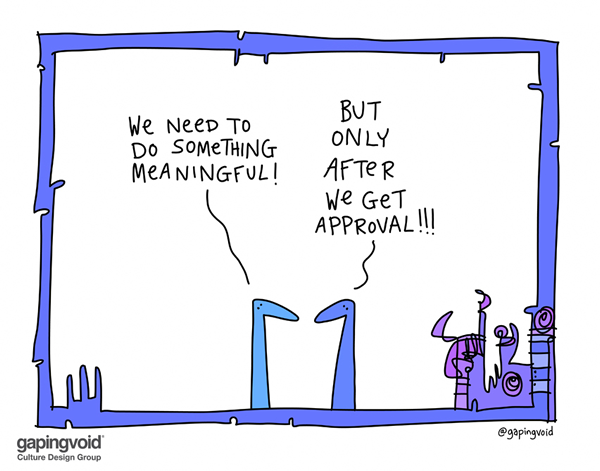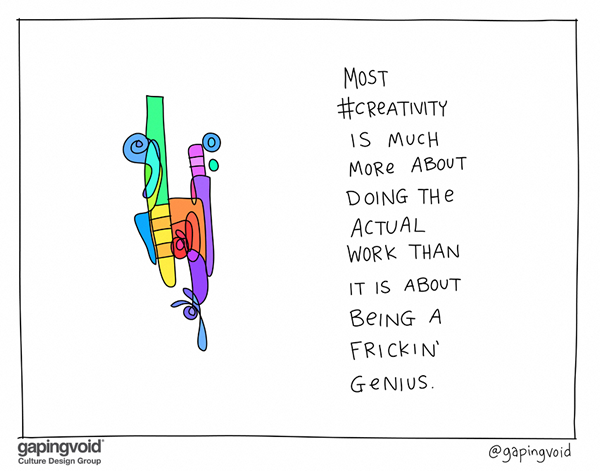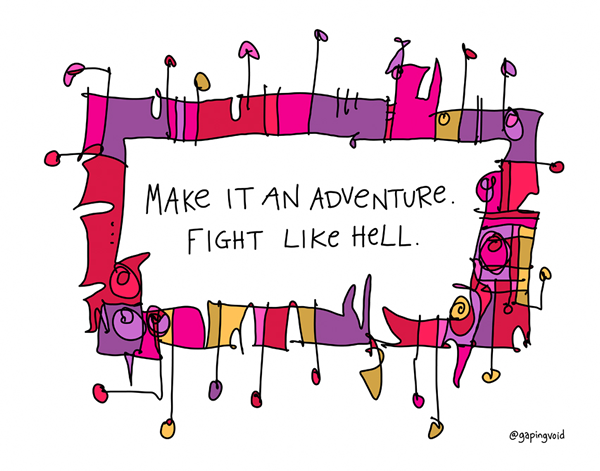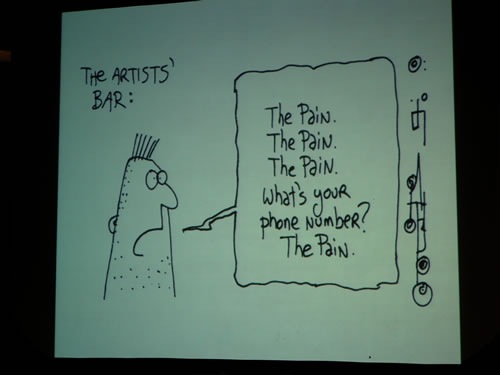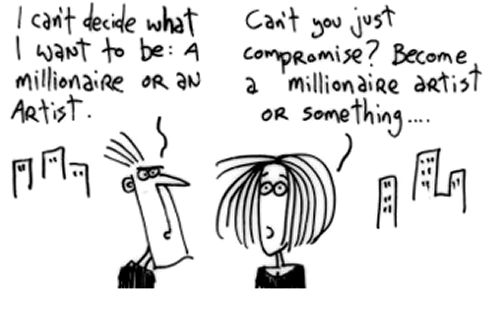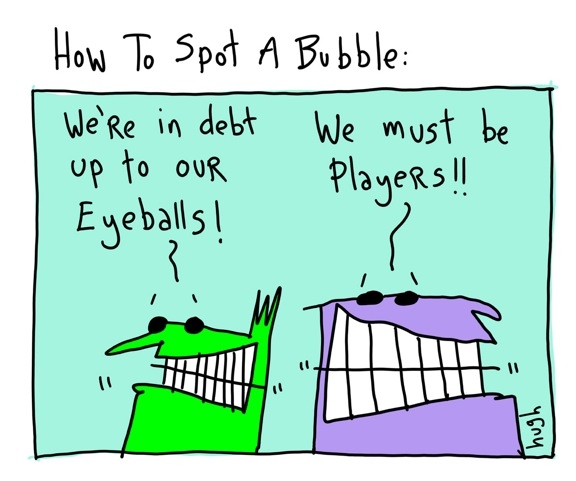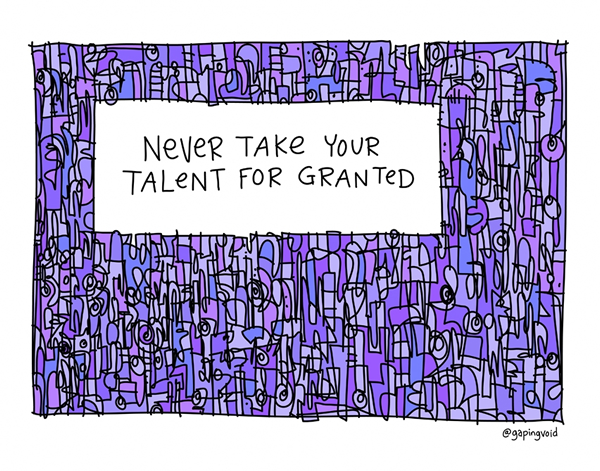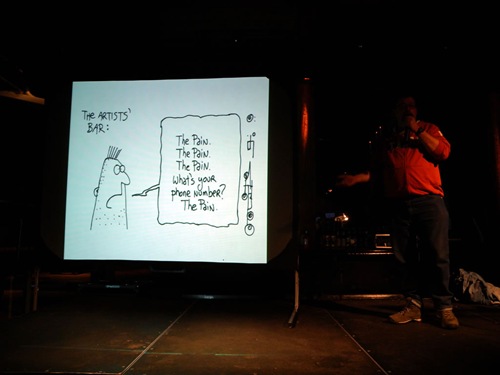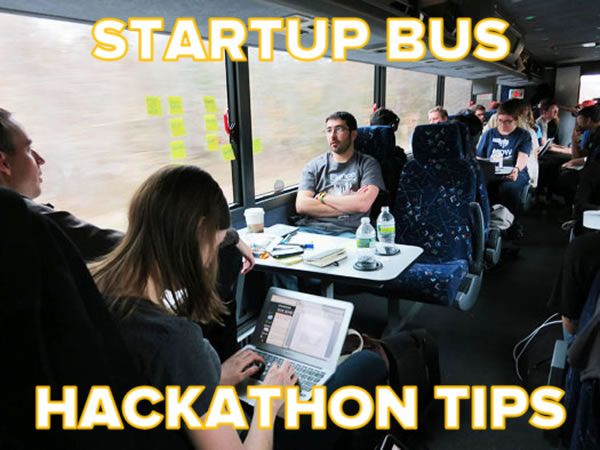
This is one of a series of articles leading up to the 10th annual Startup Bus event, which takes place from Wednesday, July 24 though Sunday, July 28th. I’ll be on the Florida Startup Bus, where I’ll be a hustler with a group that will spend three days on a bus, building a software, a business model, and a pitch, all of which we’ll present before a panel of judges in New Orleans! I hope these articles convince people to join Startup Bus, inspire the “Buspreneurs” who will be participating, and get the rest of you to find out more.
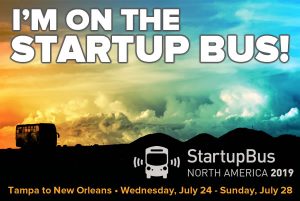 At its core, Startup Bus is a hackathon. As a portmanteau of hacking and marathon, a hackathon is a competition where participants try to build a software (and sometimes hardware) solution within a limited span of time. Startup Bus increases the challenge by expanding the goal to building not just a product, but a startup — all within 72 hours.
At its core, Startup Bus is a hackathon. As a portmanteau of hacking and marathon, a hackathon is a competition where participants try to build a software (and sometimes hardware) solution within a limited span of time. Startup Bus increases the challenge by expanding the goal to building not just a product, but a startup — all within 72 hours.
For my own benefit and the benefit of my fellow Buspreneurs, here’s a collection of startup tips from recent years. You’ll note a lot of the advice overlaps.
Delphix blog, February 2019
- Solve a real-world problem rather than a deep technical one. “When starting out, you might have a clear vision for what the demo will be, but that often changes as you run into technical problems. You’re better off presenting an abbreviated version rather than an incomplete one.”
- “Hackathons are a unique opportunity to work with engineers that you might not get to in your normal job, and explore unique crossovers between different areas of the product and company. Work with someone you might not know and learn part of the product you’re unfamiliar with.”
- Think MVP. “Make sure to keep your minimum viable product to produce an intriguing proof of concept demo because generally, you won’t have time to actually finish a full-fledged feature. ”
- Think of the end result: “Approach a hackathon with two high-level goals: 1) explore a problem affecting a segment of the audience (could be in the product or an internal organizational process) and 2) learn something new.”
- Show up to win. “The secret to winning is showing up, from participation to completion. Manage the project the same way you would for a customer-driven initiative. Determine the tasks required and prioritize them according to minimal-need, would-be-nice, and cool-factor.”
- Keep it simple, stupid. “In previous hackathons, I would always have grand projects that were very interesting, fun and complex, but I would never finish.”
- Work smarter together. “Don’t be afraid to take on a project with people much more experienced than you are.”
- Communication > flashy demo. “Technical communication is an indispensable skill in engineering, and communicating why your work is important is very often more valuable than conveying how you developed your solution. Assume that no one in the audience knows anything about the problem you’re trying to solve, and briefly provide motivation for the work at a level that everyone can understand before diving into the details.”
- Don’t be afraid to fail. “The main point of a hackathon is to have fun and socialize with your fellow coworkers on something you wouldn’t normally work on. That’s why it can be helpful to keep a running list of projects as you think of them throughout the year into a google doc.”
- Optimize for fun. “For me, the most fun hackathon project are the ones that do 3 things: forces you to learn something new, has a broad impact within your organization, and opens the door for collaboration with people outside your team.”
Alia Poonawalla, Ironhack blog, January 2019
- Dress for comfort. “You’ll want to use your brain to think about maximum productivity. I’ve found you can’t be productive if you’re not comfy. Plan for the fact that you’re going to be up all night.”
- Be realistic with your skill level. “Be realistic with your skill level and what you can do in [the allotted time]. If you’re lacking in some area find someone who can complement. If you’re junior, go for the experience instead of the win.”
- Be realistic with your scope. “Assume whatever can go wrong will go wrong. It’s better to do something well than not finishing something that was ambitious. I’ll let you in on a secret, most wins go to complete projects even if they’re simpler.”
- Have supplies.
- Understand the benefits of a hackathon. “Hackathons allow you to do cool things and experiment outside of your norm.”
- UXers… Be familiar with front end development. “As a UX designer, it’s important to have some front end dev knowledge. Even if you’re not good at implementing you will be able to slide into the workflow a lot easier.”
- Avoid being a team just to be on a team. “Make sure personality and talent fit.”
- Know the difference between hacking and a hackathon. “It’s a common misconception that “hacking” means you’re BREAKING into something. Hackathons are not that. The traditional definition is piecing something together in a novel way by using creative thinking in a way that hasn’t been done before in a short amount.”
- Find the low-hanging fruit. “Low hanging fruit are easy implementations that wow judges and can help you place at Hackathons. If there are API sponsors, utilize their software! Even if your app sucks, you can still win sponsored prizes for including them in your work.”
- Don’t freak out! “Tensions get high at a Hackathons. Late night and hours can cause anyone to break… Remember, this is all for fun and learning.”
Angel W, Noteworthy — The Journal Blog, November 2018
- The ideation phase is crucial. “Looking back at the hackathons, the ones where we did the best were the ones where we spent time to brainstorm the best solution to a problem.”
- Research the hackathon itself. One of the most helpful things to do at a hackathon is to do research on the nature of the hackathon you’ve signed up for.
- Communicate. “A hackathon is very short. Usually you have 24–36 hours to work with a team of 4 to 5 people. Being open about what you think is incredibly helpful. If you have a question, ask for clarification. If you think of a better way to solve a problem, tell your teammates. Rather than saving time early on by diving in to build the project, making sure that everyone is on the same page will save you time down the line.”
- Form a good team. “A hackathon can be stressful so you want to make sure you can rely on your teammates.
- Learn how to learn. “There’s going to be a lot of learning that happens on the spot. One thing I realized through seeing how quickly I could make something within such a short time is that you can learn anything if you really wanted to. At a hackathon, you will learn how to accelerate your learning. Don’t be afraid to use a tool you’ve never used before because a hackathon is a great place to learn how to learn.”
- Fail fast, fail often. “Every failure leads to something new, and something you really learn about yourself and the world. You never know how far you’ll go if you don’t push yourself.”
Codeworks, Code Words, August 2018
- Help each other out. “Your idea will change in ways you can’t predict.”
- Just like your laptop, arrive fully charged.
- Plan as a team. ‘‘ If I were to go back in time, I would have much better planning. I think to succeed in a hackathon, you really need to have figured out what you want to implement and get everyone to agree, at least a day in advance. Then stick to that plan during the event.’’
- Take risks.
Danijel Vincijanovic, COBE (Creators Of Beautiful Experiences), April 2017
- Team selection: “The ideal team would be the one consisting of people with different skills and types of knowledge — when skills and knowledge vary.”
- Planning and preparation: “Hope for the fastest, expect the slowest.”
- Don’t jump immediately to implementation. Take a couple of hours to brainstorm, filter ideas, prioritize features, and prototype.
- During the coding phase, take a break every 2 – 3 hours for a short meeting, where everyone informs the team what they’ve built so far, any obstacles they’ve run into, and what they’re doing next.
- “Remember that you’re creating a prototype, and not a product that should be architecturally perfect and production ready. That is why you should simplify things as much as possible, and implement features to a level where they can be presented as concept.”
- The presentation: “Victory consists of 50% presentation, 30% ideas and 20% implementation.”
- “The presentation needs to have a story — beginning and the end. In the beginning, you have to clearly explain what was the problem you were solving, and how did you solve it.”
Ingenico blog, October 2016
- Focus on a single problem. “The technology is actually the easy part of winning a hackathon. 90 percent of your task is to ruthlessly reduce the challenge down to one fundamental problem and find a solution.”
- Refine your message. “What is the critical message you want to convey to your judging panel? How can you deliver that message in a simple and impactful way?”
- Hack the clock. You have to make the most of your time:
- Focus on the MVP.
Break down your work into possible versions.
- Use frameworks and libraries. Depending on the rules of your hackathon, you may not be able to write code ahead of time, but you can use existing open-source libraries. Study the available libraries and APIs in advance. Find and choose trusted libraries that are actively being developed and have good documentation. Install them and run tests so you know they work… make sure to take advantage of these and use them in advance, so you don’t end up spending time doing it during the hackathon.
- Focus on the judging criteria.
- Don’t waste time creating login screens, confirmation pages, thank-you pages, footers, social buttons, or anything else unnecessary.
- Don’t write beautiful code: You don’t have the luxury to fix indentation or otherwise make things look pretty.
- Don’t waste time looking for perfect data sets. Fake the parts that aren’t mission critical and focus on conveying the message.
- Practice your pitch. “Don’t let all the effort be wasted by presenting a bad pitch. Take enough time to practice your pitch and prepare for potential questions from the judges. A dedicated person from the team should practice non-stop in the final hours before judging. When it’s time to deliver your pitch, this person should field all the judges’ questions.”
- Have fun! “A hackathon is a competition and a big potential opportunity for you to learn something new, but remember to have fun! Don’t put pressure on yourself, get stressed out, or worry about the results if you don’t accomplish your objective or win. A hackathon is a tremendous learning experience, and it’s a great chance to experiment and meet interesting people. Have the best time you can, make your best effort, and take away all the positives you can from the entire experience.”
